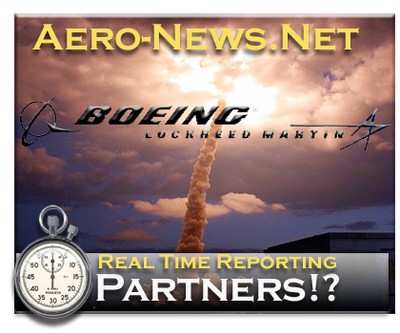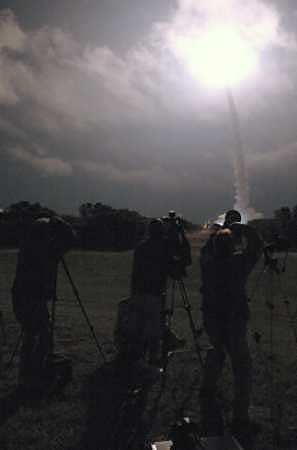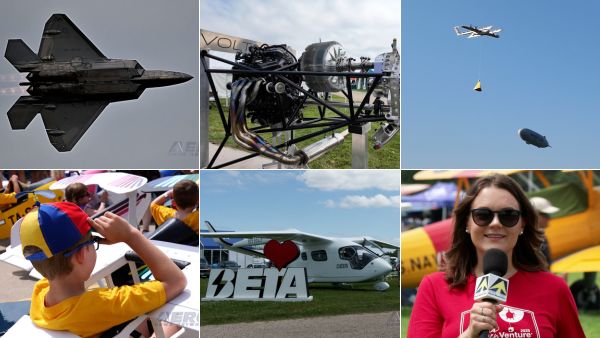Fri, Oct 21, 2005
Says Monopolistic Merger Limits Competition, Costs
Taxpayers
Citizens Against Government Waste (CAGW) Thursday urged the Air
Force against granting sole-source contracts for heavy satellite
launches to United Launch Alliance (ULA), a joint venture between
Boeing and Lockheed Martin. Regulators are expected to rule on the
merger shortly and the companies are now jointly negotiating for
the third round of launches under the $32 billion Evolved
Expendable Launch Vehicle (EELV) program, which will cover 23
missions lasting through 2011 and beyond. Despite the cost
overruns, schedule delays, and scandals that have plagued EELV,
there is no legal requirement for the Air Force to consider
additional bidders that may emerge before 2011.

"The structure slams the door on any possible competition," CAGW
President Tom Schatz said. "The ULA locks up all contracts,
ensuring high costs for taxpayers and stifling innovation."
The ULA will provide national security launch services for the
Department of Defense (DOD) and some NASA missions, but Boeing and
Lockheed Martin will continue competing for private launches. The
FTC and DOD have questioned the companies' claim that consolidation
will save $100 million to $150 million per year. The EELV program
was implemented in 1995 to give the federal government "assured
access" to space by keeping two domestic providers viable. The
first round of contracts was awarded to the same companies in 1998
with the expectation that a strong commercial launching market
emerge. However, the companies failed to adjust to market
conditions and the government has assumed an increasing share of
the risk and cost of the launching operations. If approved, the ULA
will benefit from $650 million in government subsidies for
infrastructure and about $100 million per launch.

"The Boeing tanker lease scandal showed that depending on a
small number of contractors ties the government's hands in cases of
corporate malfeasance. This consolidation leaves the government
with no alternatives if the companies waste tax dollars as they
have done in the past," Schatz continued.
A July 2005 report from the Government Accountability Office
referred to the DOD's space system acquisition efforts as "dismal."
EELV's unit cost has grown 81 percent. During the first round of
bidding seven years go, Boeing obtained proprietary information
from Lockheed Martin and the resulting investigation and suspension
cost taxpayers $230 million. The House version of the fiscal 2006
Defense Appropriations bill included language requiring future EELV
contracts to be negotiated on an annual basis because "multi-year
contracts are no longer in the interests of taxpayers."
"The Air Force is propping up failing ventures with lucrative
long-term contracts, forcing taxpayers to fund the EELV boondoggle
for years to come. To keep the US space launching industry
competitive, the Air Force should do whatever it can to open the
field to new competitors," Schatz concluded.
More News
Also: Centauri Aircraft Valkyrie, Meet the Admin, Night Airshow, Pelton Intv'w When we laid eyes on this critter, we fell in love… and then we learned the amazing story of t>[...]
Check out Blackshape in Oshkosh Display #190 Situated in the Apulian Aerospace district in Monopoli, Italy, Blackshape embodies the epitome of Italian craftsmanship, style, and qua>[...]
A Powerhouse In Aviation Safety Technology, Visit Alpha Systems AOA at Osh Display#3124-3125 Alpha systems AOA has been developing and integrating Angle of Attack systems for the l>[...]
High-Flying Models By PilotMall.com: Honoring Aviation's Legacy We are dedicated to preserving and celebrating our rich aviation heritage through stunning mahogany wood scale repli>[...]
CiES Has Pioneered Life Saving Technology Of Use To Pilots All Over The World... Booth 3119 CiES: CiES Inc. is the global leader in digital fuel quantity sensors for general aviati>[...]
 OSH25 Day Four Redux: Spirit SE-1!, H55 eFlyer, King Schools
OSH25 Day Four Redux: Spirit SE-1!, H55 eFlyer, King Schools ANN Thanks Our Speedy Sponsor... Blackshape!!!
ANN Thanks Our Speedy Sponsor... Blackshape!!! Alpha Systems AOA Guides ANN Oshkosh Coverage
Alpha Systems AOA Guides ANN Oshkosh Coverage Pilot Mall Intro's High Flying Models To ANN Sponsor Lineup
Pilot Mall Intro's High Flying Models To ANN Sponsor Lineup CiES Fuels ANN's Oshkosh 2025 Special Event Coverage
CiES Fuels ANN's Oshkosh 2025 Special Event Coverage




